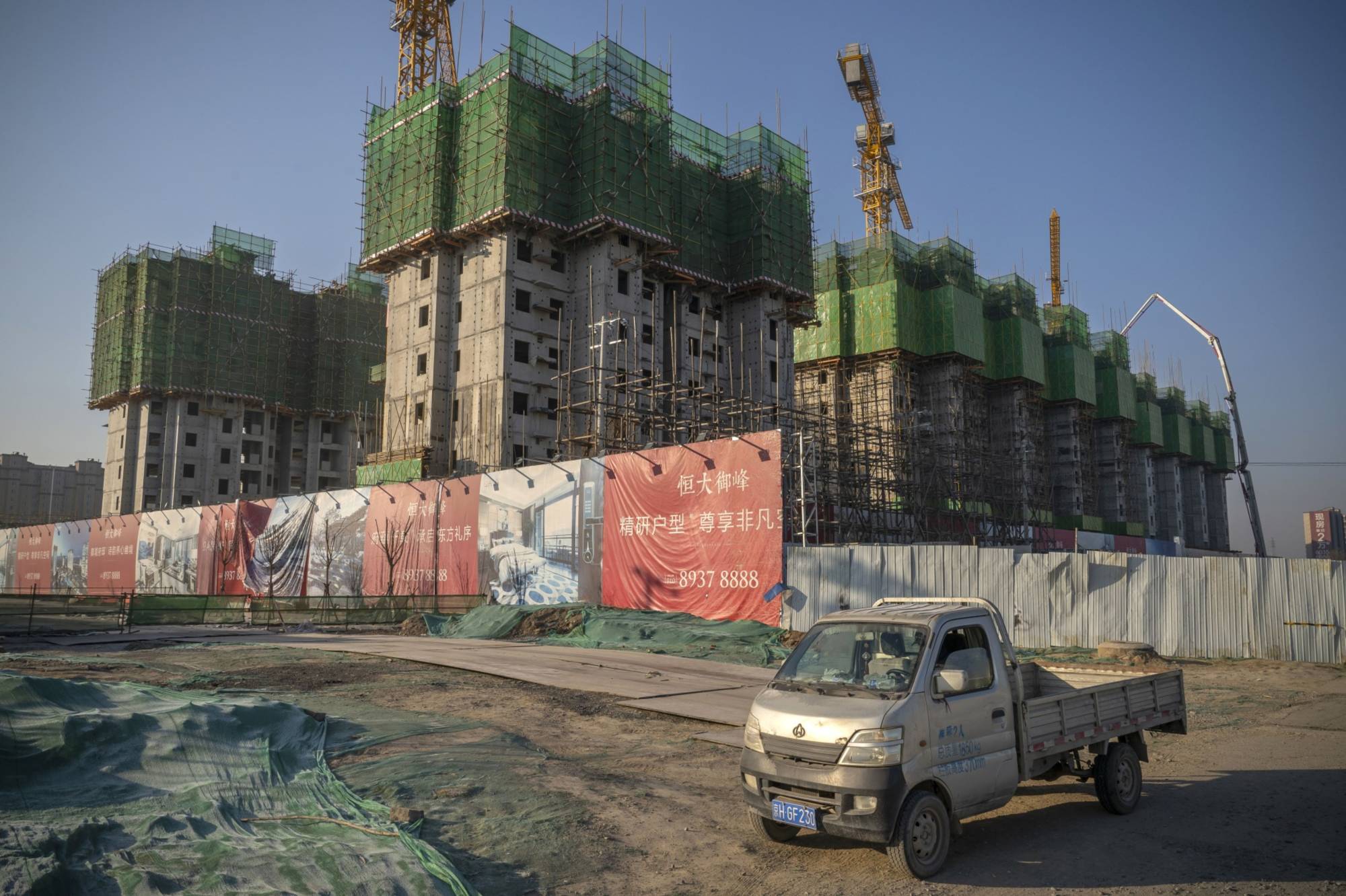Here's a scenario. You buy a pre-construction apartment and start paying the mortgage before it's complete. The developer halts the project, has defaulted on its debt and it looks like the property may never get built. You hear of buyers elsewhere who have stopped making their loan payments; the government has stepped in to ensure the builders have money and is considering giving mortgage borrowers a temporary holiday. What are you going to do?
This encapsulates the dilemma for the Chinese government in coming to the aid of buyers in stalled housing projects. An effort to short-circuit the spread of mortgage boycotts risks fueling exactly the behavior it is trying to prevent. Authorities had little choice but to do something, given the rising market alarm, and their intervention sparked a relief rally in property and bank stocks recently. Whether this marks a turning point or merely a pause before the next leg down in the real estate crisis remains to be seen.
The figures, on the face of things, suggest limited cause for concern. Affected loans amount to less than 0.01% of outstanding residential mortgages at most Chinese banks, according to Fitch Ratings. As much as 2 trillion Chinese yuan ($297 billion) of advances could be impacted, Bloomberg News reported GF Securities Co. as saying. Even that, which is a measure of assets rather than potential losses, is barely 5% of China’s 38.8 trillion yuan of total outstanding mortgages. If every buyer defaulted it would lead to a 388 billion yuan increase in nonperforming loans, Jefferies estimates.



















With your current subscription plan you can comment on stories. However, before writing your first comment, please create a display name in the Profile section of your subscriber account page.